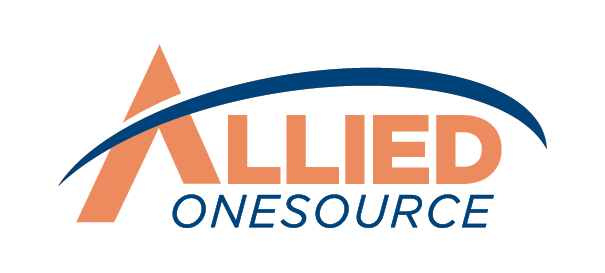Ethical Considerations in Staffing: Promoting Fairness and Equal Opportunities
As an employer, your goal is to create an inclusive work environment that understands your team’s needs and supports their aspirations for growth. It’s essential to know the principles of being an equal opportunity employer if you want to achieve this, it is essential to know the principles of being an equal-opportunity employer.
In this article, we’ll go over what it means to be an equal opportunity employer.
Defining Equal Employment Opportunity
Equal employment opportunity in staffing refers to the guiding principle and practice of providing employees and candidates with fair and unbiased treatment throughout the recruitment, selection, and employment processes.
The foundation of this approach lies in evaluating individuals based on their skills, abilities, and qualifications, without allowing their protected characteristics, such as race, gender, sexual orientation, age, religion, or disability, to influence decision-making processes.
It’s rooted in the belief that every person deserves an equal chance to advance and succeed in their chosen career, regardless of any acquired or innate differences they may have. It’s also important to understand that Equal Employment Opportunity (EEO) doesn’t guarantee people from underrepresented groups will be hired or promoted.
Rather, its regulations ensure that no individual will face rejection or unfair treatment based on their protected traits or group affiliations. The primary objective of EEO is to create a level playing field, ensuring that all individuals are judged on their merits and qualifications rather than any personal characteristics.¹
Advantages of Equal Opportunities at Work
There are many benefits of equal opportunities at work that can affect your team’s overall progress and success. Here are some of these advantages:
1. Promotes diversity in the workplace.
A diverse workforce is composed of individuals from various ethnicities, races, genders, and backgrounds. This diversity aligns closely with equal opportunities, fostering an environment where people can break free from conventional corporate thinking. It creates a friendly work environment that reduces prejudice and bias.
With diversity in your workplace, employees can resolve differences, respect diversity in opinions and perspectives, and build strong relationships based on mutual understanding.
2. Can provide the right opportunities for the development of skills.
Employees seek continuous growth and development in their respective roles. And equal opportunities are a great way of facilitating this progress.
With EEO in place, employees have the chance to learn from a diverse peer group, exposing them to various perspectives and innovative ideas. This exposure encourages new developments, stimulates creativity, and helps employees learn new techniques to enhance their work performance.
3. Elevates engagement among employees.
Employee engagement is important for an organization’s success. It can help build trust and respect among teammates and peers, promote accountability, and boost team dynamics.
4. Gives access to a wide pool of candidates.
A workplace that thrives on equality has no room for bias and discrimination. EEO enables leaders to hire based on their organization's needs and requirements without being swayed by applicants' protected traits.
This approach opens up the potential to access a diverse pool of candidates with varied skills and experiences. Minimizing bias during recruitment allows companies to conduct a more efficient and fair hiring process.
5. Can boost the organization's reputation.
People, including job applicants, are always on the lookout for an organization with a good brand reputation, one that has values or advocacies to share. Companies with EEO can encourage authentic advocacy from their employees, build trust with diverse clients, gain competitive advantage, and attract talented individuals from diverse backgrounds.
Opportunities and Fairness in the Workplace: What It Looks Like Now
While progress has been made in the representation of women and people of color, there are still concerns about the extent of improvement. According to surveys, around 69 percent of men and 66 percent of women believe they have equal opportunities for growth and development, showing a relatively positive sentiment among both genders.
However, perceptions of fairness paint a different picture. Only 51 percent of men and 46 percent of women agree that promotions are based on objective and fair criteria, indicating a lack of trust in the promotion process.
Women's concerns about fairness are validated as one in four believe their gender affects their chances of career advancement. This suggests that gender biases might influence decision-making in some workplaces.
Moreover, data from Lean In highlights gender disparities in managerial positions, with 62 percent of men and only 38 percent of women holding such roles. People of color face even greater challenges, with only 10 percent of men and 4 percent of women making up the C-suite, compared to 68 percent of white men and 18 percent of white women.²
These disparities underscore the need for continued efforts to create truly equitable workplaces where everyone has equal opportunities to succeed.
Promoting Fairness and Equal Opportunities in the Workplace
It's important to go beyond mere efforts on equality and ensure that your team feels the affirmative actions being taken to support their growth to truly foster fairness and equal opportunities within your organization.
Affirmative actions involve actively promoting opportunities for historically disadvantaged groups to level the playing field in business, employment, and training.
What Can You Do to Promote Opportunities at Work?
Here are key steps you can take to promote opportunities at work:
1. Provide managerial support.
Managers have a great impact in shaping how employees perceive the opportunities available to them. When leaders showcase the value of their team's work and actively manage their careers, individuals are more likely to trust that they can grow within the company.
Managers can also act as advocates, ensuring that deserving team members have access to the right opportunities.
However, it’s important to acknowledge that not all managers consistently provide this level of support. Lean In's report indicates that only about 34 percent of men and 26 percent of women feel their leaders strongly advocate for their opportunities, and less than a quarter of respondents say their managers regularly help them manage their careers.
To address this, employers can invest in training and equipping managers with the right tools to support their colleagues and team members effectively. Encourage open communication, set clear expectations for career development, and foster a culture of mentorship and growth within the organization.
2. Make sponsorship available.
Sponsorship is a powerful tool to expand opportunities for employees. Currently, less than half (45 percent) of managerial members serve as sponsors at work, and only one in three employees report having a sponsor (32 percent for both men and women).
Companies can benefit from promoting sponsorships, as they can significantly accelerate career advancement for employees. Having a sponsor creates a sense of support and trust in the opportunities available within the workplace. Encourage senior leaders to sponsor rising talent and implement formal sponsorship programs to provide structured support to employees' career development.
3. Promote unbiased and inclusive hiring and promotions.
Transparency and fairness in hiring and promotions are crucial to fostering a sense of trust and confidence among employees that the system is equitable.
However, progress towards this has been slow over the last few years. Only 6 of 32,313 companies report they follow these things:
- Setting clear and consistent evaluation criteria
- Establishing diversity targets
- Requiring diverse candidate slates for hiring and promotions, and
- Providing unconscious bias training for employees involved in performance reviews
While progress in these areas has been slow in some organizations, adopting these best practices can significantly strengthen the business. Hiring and promotions are powerful levers to promote diversity in your organization's talent pipelines and increase employee satisfaction.²
Uplift your employees with equal opportunities.
Caring for every one of your employees is possible through equal opportunities. This way, you can create a space for them to grow together and to learn from one another with their diverse backgrounds.
ALLIED ONESOURCE CAN HELP YOU TAKE CARE OF YOUR INCLUSIVE STAFFING REQUIREMENTS
Allied OneSource is one of the oldest staffing and recruiting companies in the country. We’re dedicated to fostering connections between candidates and clients while prioritizing diversity. Let's talk about your inclusive staffing needs. Talk to us today!
References
1 Society of Human Resource Management. "Equal Employment Opportunity Policy: Detailed." SHRM, accessed 11 Aug. 2023, https://www.shrm.org/resourcesandtools/tools-and-samples/policies/pages/eeo-policy-detailed.aspx.
2 “Women in the Workplace 2019.” Lean In,
leanin.org/women-in-the-workplace/2019/progress-at-the-top. Accessed 30 May 2023.











